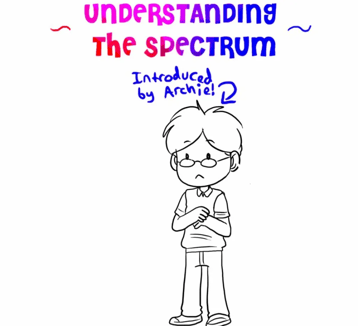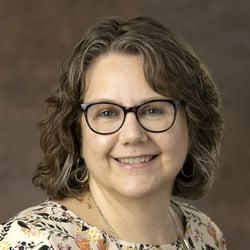In 2013, the American Psychiatric Association (APA) released a new version of “Diagnostic and Statistical Manual of Mental Disorders,” the guide used by clinicians to diagnose mental health conditions. The new version, called DSM-5, introduced a significant change by grouping four independent diagnoses into a single classification called autism spectrum disorder (ASD). This term now includes:
- Asperger syndrome
- Autistic disorder
- Childhood disintegrative disorder
- Pervasive developmental disorder-not otherwise specified

Because the four conditions have the same basic symptoms, the APA views them as “best thought of as a single disorder on a wide spectrum,” hence the name autism spectrum disorder.
Author and comic artist and illustrator Rebecca Burgess provides a comprehensible depiction of ASD in “Understanding the Spectrum — A Comic Strip Explanation.”
ASD has been the topic of many conversations, studies and published materials, discussing what it is, what causes it, common symptoms and behavioral patterns, how it is diagnosed and managed and the types of research that have been conducted.
Along with all the great information about autism spectrum disorder are the stereotypes, myths and misconceptions, some dating back decades. Erica Crawford, PsyD, a psychologist with Pediatrix® Developmental Medicine of Dallas, has spent years caring for children and adults with ASD. Dr. Crawford recently addressed some common misconceptions about ASD.
Is ASD a childhood condition?
No. Children with autism grow up to be adults with autism. They have different needs, issues and concerns than children with autism, but it is not a childhood condition. The topic of adults with autism is less studied. Still, research suggests that adults with autism, especially seniors, are at a higher risk for nearly all health diseases (e.g., diabetes, epilepsy, heart disease) and mental health issues (e.g., depression, anxiety, OCD, schizophrenia). The adult population often struggles to find the right resources and support.
Do vaccines cause ASD?
This is one of the most widely studied myths. Repeated studies conclusively support that vaccines do not cause ASD. Peter J. Hotez, M.D., Ph.D., a pediatrician and scientist who develops vaccines for tropical diseases and has a daughter with autism, wrote a book in 2018 titled ‘Vaccines did not Cause Rachel’s Autism.’ In the book, he discusses all the supportive research that debunks the concerns about vaccines allegedly causing ASD.
Is it true that people with ASD are unable to form relationships?
This is such an odd myth to me. Human beings form attachments and connections to other human beings. Of course, people with autism form relationships. The way they show that connection is sometimes different. One person with autism described their love language as ‘penguin pebbles.’ When penguins like other penguins, they bring them pretty pebbles. Some people with autism share information or things they like with a person to open a connection with them. There is a reality show called ‘Love on the Spectrum.’ It goes into all the difficulties of dating and making a long-term partner connection for people with ASD. What can be seen over and over is that the desire for relationships is true for all humans, with or without autism.
Are most people with ASD nonverbal?
This is a myth because the definition of autism has changed. When psychiatrist and physician Leo Kanner first came out with his diagnosis and characterization of autism in 1943, most people with autism were nonverbal or had significant verbal disabilities. Today, with the broader definition, numbers suggest that only 40% of people with ASD are nonverbal. In addition, 31% have an intellectual disability, which is why some autistic people have a verbal disability.
Is it true that people with ASD never want to be touched?
No. ‘Sensory processing difference’ is a diagnostic factor for ASD. This may come out in many different extremes. One extreme may be sensory sensitivity, which makes some types of touch uncomfortable or painful. Others may seek sensory input and want a lot of hugs and cuddles. Even people who have difficulties with touch usually want to feel connected through touch, but they have to feel safe and close to the person. They may also only want a specific type of touch, such as a light or firm hug or handhold.
Are people with ASD unable to show empathy?
Empathy is not one thing; it is a very broad concept with multiple components. Psychologist Daniel Goleman broke it down into three parts, which can help us understand empathy development in people with autism:
- Emotional empathy is feeling along with someone else. People with autism often describe this as a strong trait in themselves, so much so that it can be dysregulating (difficult to control their emotions). When a person ‘feels’ others’ emotions, they may cry when others cry. Because it is dysregulating, they may withdraw from that feeling and person or become angry and lash out.
- Compassionate empathy is wanting to do something to help the other person, joining in the joy through words or actions and saying or doing things to comfort the other person’s distress. Many people with autism also report experiencing this as well. They tend to have a strong sense of loyalty and justice. They want to protect their loved ones and friends. The difficulty often comes about in the third type of empathy, cognitive empathy.
- Cognitive empathy is an area where people with autism often struggle. It is all about perspective and unspoken social expectations. Just as it is difficult for the person without autism to understand the experiences of the autistic person, it is difficult for the autistic person to understand the experiences of people without autism.
Do all autistic people have special talents?
Some people with autism have special talents, and some people without autism have special talents. When a person with or without autism has a talent, they are more likely to be noticed and remembered. Like the majority of people in the population, most people with autism don’t have a unique talent but may develop high-level skills in an area by putting a lot of work into that skill. Also, one of the defining characteristics of autism is having the ability to focus intently and drive to learn in areas of interest. When people spend a lot of time and energy learning and practicing a skill, they get better at it. Another confusing factor is that people with autism are more likely to have splinter skills, meaning that if you measure IQ, their performance across the subtests is more likely to be highly variable than those without autism. In general, though, people with autism are no more likely to have a special talent than people without autism.
Are autistic people anti-social?
Anti-social is a term in psychology used to talk about people with a personality disorder characterized by a persistent disregard for other people’s rights, a failure to comply with laws and social customs and a tendency to engage in irresponsible and reckless behavior. These personality traits are most often found in criminals.
This idea is often confused with another defining characteristic of ASD: difficulty with social interactions. There are many reasons for social-interaction issues. One might be that someone with ASD is perfectly content to learn about their interests and do their preferred activities alone, so they don’t have the motivation to engage with others as much as people without autism. This is often true about people who are introverted and not autistic.
People with this experience often enjoy social interactions that involve joining in favorite activities or sharing interests. They prefer deep conversations about the shared interest or no dialogue and doing a favorite activity together instead.
Other people with autism want relationships and want to be social but make social errors because they have trouble interpreting nonverbal communication, are unable to see another’s perspective and have sensory processing challenges. When a person is repeatedly called out for making social errors, withdrawing from those interactions is a human reaction to avoid the repercussions. This creates a situation where a person with autism is withdrawn, not from a lack of desire but because of their negative experiences.
Does bad parenting cause ASD?
This myth, coined in the 1940s and perpetuated into the 1990s, set back the understanding and treatments to help people with autism for generations. We know that there is nothing parents are doing or not doing that causes autism. Along these same lines, I have recently been asked whether the social isolation of the pandemic caused autistic traits. This is also a myth.
Can autistic people live independent lives?
Most people with autism are verbal and have average or higher cognitive skills. These are the two most limiting factors in becoming independent. Another factor is health or mental health issues. The third factor is often referred to as ‘soft skills,’ the social expectations in a job that are often overlooked when other skills are taught and are essential for success in the workplace. The clearest answer is that there is no good reason why most people with autism cannot become independent. However, this process may require a different route than the average person. They may need direct teaching on certain skills that come easily to people without autism. They may need support for a longer time during the early adulthood stage of life.
Additional Resources
 Dr. Crawford recommends several resources for medical professionals, parents, guardians and anyone interested in gaining a more in-depth insight into autism spectrum disorder.
Dr. Crawford recommends several resources for medical professionals, parents, guardians and anyone interested in gaining a more in-depth insight into autism spectrum disorder.
- NeuroTribes: The Legacy of Autism and the Future of Neurodiversity by Steve Silberman
- Uniquely Human: A Different Way of Seeing Autism by Barry M. Prizant, Ph.D., CCC-SLP
- Autism Speaks — Support for families and friends of children and adults with ASD
- National Autism Association — National resources for the ASD community
- Austen’s Autistic Adventures — Daily social skills group for older teens and adults
- United Through H.O.P.E. — Helping people with ASD progress and excel
- AUsome Moms — Support, social opportunities and education for families of children on the autism spectrum
- DFW ASD — Resources for people with ASD and their families
- Spectrum News — A newsletter covering all things ASD
Check out our blog feature “Living With Autism Spectrum Disorder” to learn more about ASD.
